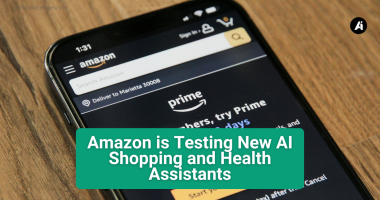Ever had an ECG test at a routine check-up? Maybe you’ve even seen your heart data on an Apple Watch. It’s a simple test, affordable, and widely used.
But what if this basic heart scan could suddenly behave like a more advanced and expensive test—like an echocardiogram? Sounds too good to be true, right?
Well, researchers from Rutgers Health and RWJBarnabas Health just made it real. They’ve developed an artificial intelligence (AI) tool that can transform ordinary ECG readings into detailed heart motion signals—the kind you’d normally only get from an echocardiogram.
So, how exactly does that work?
Generative AI Converts ECGs into Heart Motion Maps
At the center of this breakthrough is generative AI, specifically a form called Generative Adversarial Networks (GANs).
These AI models take the electrical signals from a simple ECG and generate synthetic waveforms that closely resemble Tissue Doppler Imaging (TDI) signals—used by cardiologists to assess how well your heart muscle is relaxing and contracting.
Instead of needing a bulky ultrasound device and a trained specialist to perform an echocardiogram, doctors could potentially get similar insights from just an ECG. That means faster, cheaper, and more accessible heart monitoring—possibly even from a smartwatch someday.
Dr. Partho Sengupta, the senior researcher, put it this way: “ECG is very inexpensive… An echocardiogram is 5 to 10 times more expensive because it requires time, equipment, and expertise.”
Can This AI Really Catch Heart Disease Earlier?
Yes—and that’s where it gets even more exciting. Traditional ECGs often detect heart problems late in the game, when obvious signs like a reduced ejection fraction (how much blood your heart pumps) show up. But this new AI-enhanced ECG can spot subtle changes in the heart’s movement much earlier—even before symptoms appear.
For example, the AI can detect:
- Diastolic dysfunction (when the heart has trouble relaxing)
- Systolic dysfunction (when it struggles to contract)
And here’s the kicker: in randomized tests, even trained cardiologists couldn’t tell the difference between real Doppler waveforms and AI-generated ones. That’s how close the technology is to the real thing.
What Could This Mean for the Future of Heart Care?
Let’s be real—millions of people live with silent heart issues that only get diagnosed when it’s too late. This tech could change that. It opens the door for routine, low-cost heart screening, just like colonoscopies screen for colon cancer.
Imagine going in for a check-up, getting a quick ECG, and walking out with detailed insights into your heart’s performance. That could lead to early interventions, fewer unnecessary tests, and better outcomes.
In fact, testing showed that this method could:
- Reduce echocardiograms by over 64% for systolic issues
- Reduce them by nearly 70% for diastolic problems
- Only miss 1.4% and 6.5% of cases respectively
That’s a huge impact—both in terms of saving money and catching problems early.
What’s Next? Digital Twins and Personalized Heart Simulations
Here’s where the sci-fi part comes in: Dr. Sengupta and his team are already thinking ahead. Their vision? A digital twin of your heart—a virtual model that lets doctors test treatments before trying them on the real you.
Think of it like how NASA runs Mars landing simulations before actually sending a rover. In the same way, cardiologists could use your digital heart to preview how a certain medication or procedure would work. Sounds futuristic, but it’s already on the horizon.
“Why do we wait for symptoms to develop when the disease starts far earlier?” asks Dr. Sengupta. “Can we make something like a colonoscopy for heart disease?”
The team behind this innovation built everything from the ground up with support from the National Science Foundation’s Bridges to Digital Health program. It’s a perfect example of what happens when doctors and engineers collaborate to solve real-world problems.
Bottom line
This AI could revolutionize heart care. It’s not just about cool tech—it’s about giving more people a chance to detect heart disease before it becomes dangerous, using tools that are already in our hospitals, clinics, and maybe even on our wrists.
Want to talk about what this means for your own health or practice? Or how AI is changing other areas of medicine? Let’s dive in.






